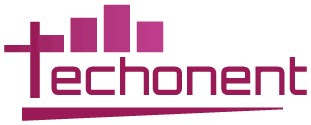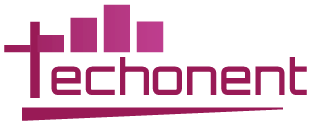
In today's dynamic business environment, the ability to harness and distribute organizational knowledge effectively is crucial. Knowledge management systems play a pivotal role in capturing, organizing, and sharing information within a company, thereby enhancing team efficiency and innovation. These systems are designed to help organizations manage their intellectual assets and maintain a competitive edge in the marketplace. With the right tools, employees can quickly access the information they need, when they need it, fostering a more agile and informed workforce. Keep reading to explore the transformative power of knowledge management and how it can propel your team toward success.
Understanding Knowledge Management and Its Impact on Team Efficiency
Knowledge management (KM) helps organizations capture, share, and use knowledge effectively to improve collaboration and decision-making. By breaking down information silos and making key insights accessible, KM supports innovation, boosts customer service, and helps teams avoid repeating mistakes.
Technology plays a crucial role in successful KM. With tools like RightAnswers or Panviva, teams can rely on top knowledge management software to streamline information sharing, reduce search time, and support continuous learning, making work more efficient and outcomes more consistent.
Essential Features to Look for in Knowledge Management Tools
When choosing knowledge management tools, prioritize usability with an intuitive interface that enables easy information sharing. Scalability is essential to support growing data and users. Collaboration tools like document sharing, real-time editing, and discussion forums help teams work efficiently across locations.
Strong knowledge retention features, including archiving and retrieval systems, ensure critical information isn’t lost. Categorization and advanced search capabilities are vital for quick content access and organization. Robust security features such as access controls, encryption, and regulatory compliance are crucial to protecting sensitive data and maintaining ethical standards within the organization.
Leveraging Knowledge Management Tools for Collaborative Success
Knowledge management (KM) tools enhance collaboration by breaking down information silos and promoting idea sharing across departments. They offer centralized platforms where individual expertise becomes shared organizational knowledge, fostering innovation and a unified culture. KM tools simplify complex tasks by documenting workflows and best practices, enabling teams to perform efficiently and adapt quickly to change.
They also capture tacit knowledge, creating accessible repositories filled with expert insights and essential resources, which support both seasoned employees and new hires. For remote teams, KM software bridges physical distances through integrated communication tools like video calls and messaging, helping maintain alignment and engagement across geographies.
Integrating Knowledge Management Tools with Existing Systems
For knowledge management (KM) tools to be effective, they must integrate seamlessly with existing organizational systems like CRM, ERP, or project management platforms. This integration embeds KM into daily workflows, enabling automatic information flow that supports decision-making and process efficiency. A well-integrated KM solution enhances existing tools by supplying relevant knowledge, reducing data redundancy and inconsistencies.
Though integration poses technical challenges, many modern KM platforms offer APIs and plug-ins for smooth connectivity. Equally vital is cultural integration—employees must see value in KM and adopt it naturally. Leadership support and proper training are essential to promote engagement and ensure successful adoption across teams.
Evaluating and Measuring the Effectiveness of Your Knowledge Management Strategy
Evaluating the effectiveness of knowledge management (KM) initiatives involves tracking key metrics like usage rates, employee satisfaction, and information retrieval speed. These indicators help determine if KM tools are aligning with business goals. Assessing how KM systems support innovation and streamline problem-solving also reveals their value—tools that reduce redundancy and boost quality output signal success.
Measuring ROI by comparing costs with benefits, such as time saved or customer satisfaction, is another crucial step. Gathering user feedback through surveys and activity reports helps identify challenges and opportunities for improvement, ensuring that KM strategies remain responsive to organizational needs.
Overall, the strategic implementation of knowledge management tools plays a compelling role in unlocking the full potential of your team. It can transform the way information flows within an organization, making it more collaborative, innovative, and efficient. By carefully considering the features, integration capabilities, and regularly evaluating the effectiveness of your KM tools, you can sustain a knowledge-driven culture that will keep your organization at the forefront of its industry.

